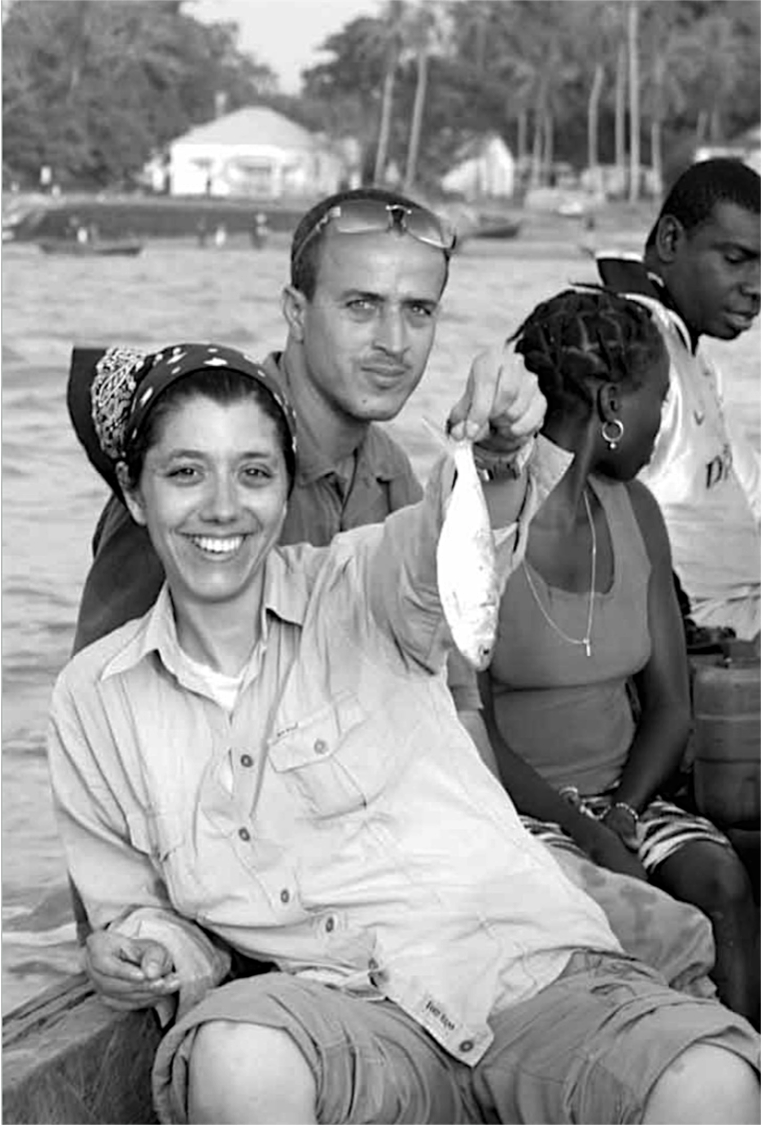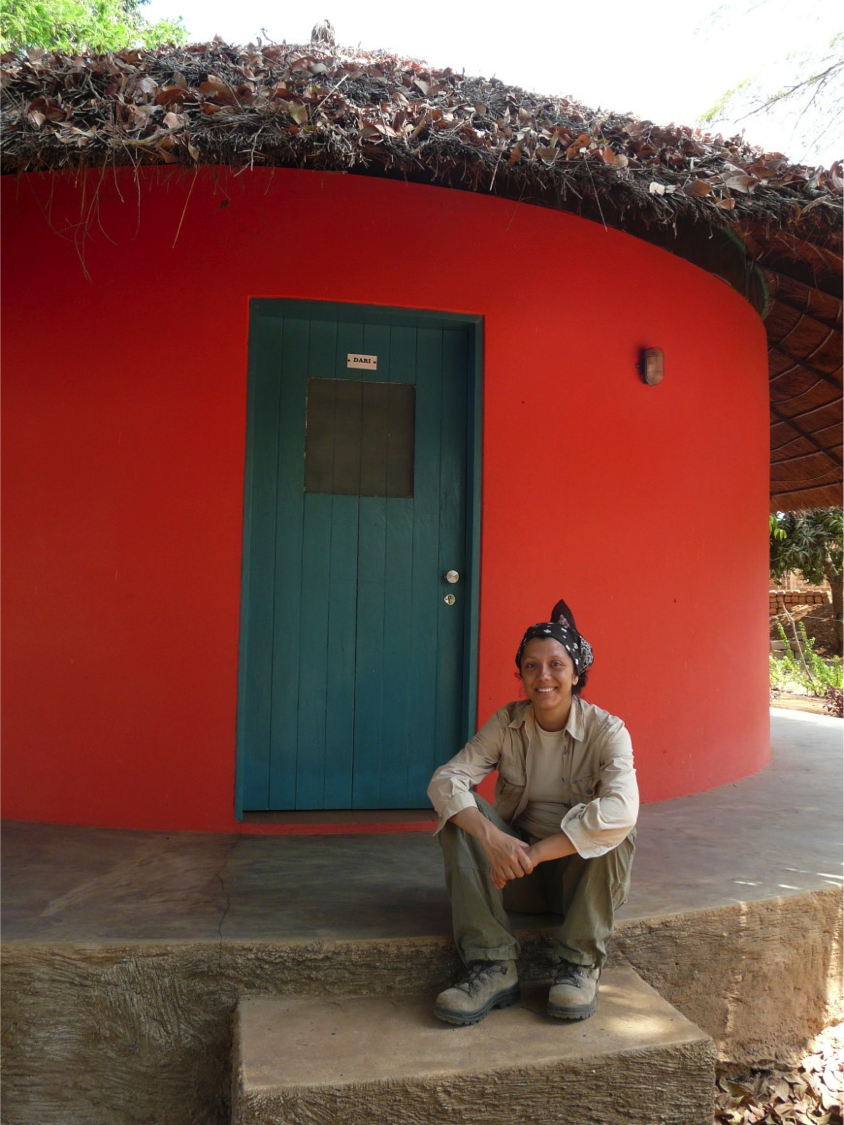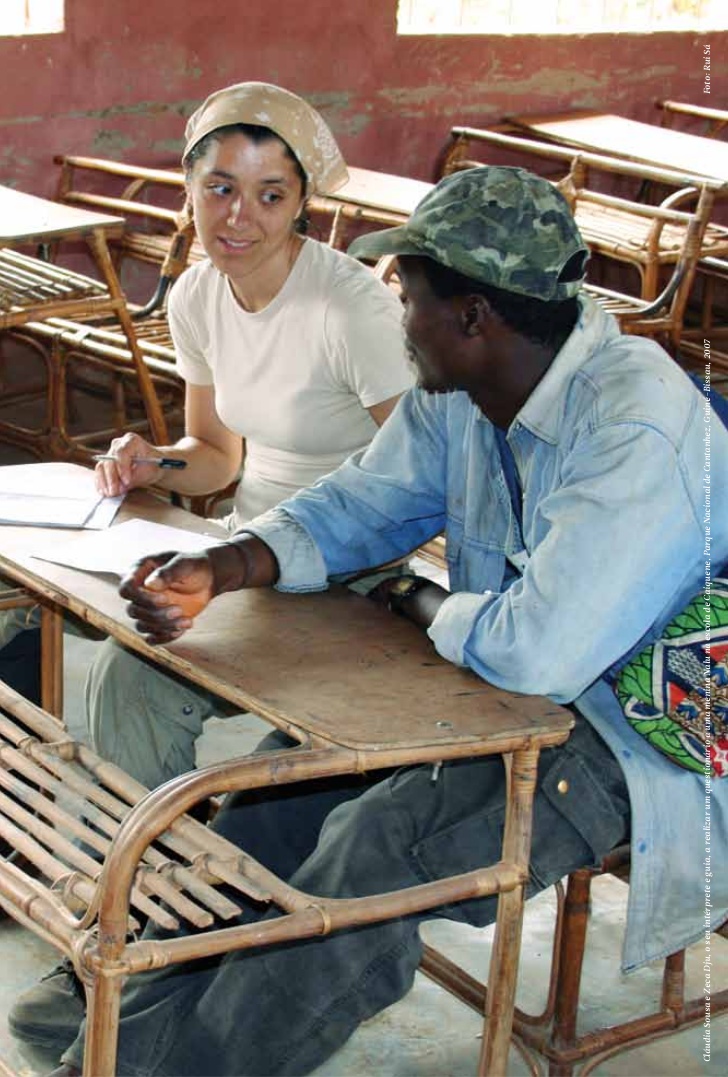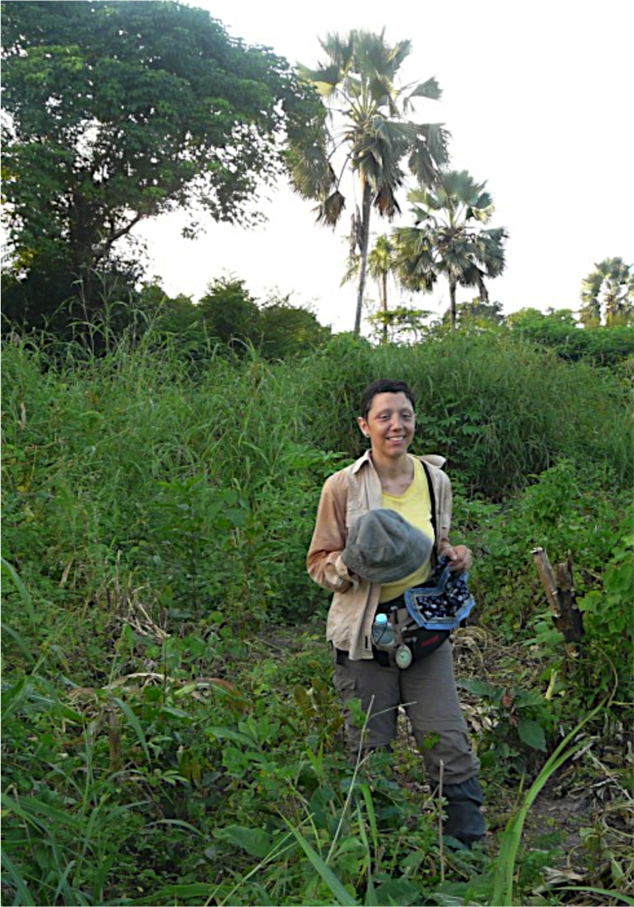Cláudia Sousa (1975-2014)
Portuguese Anthropologist


Having graduated in Biology, in 1997, Cláudia Sousa devoted most of her adult life to the investigation of the behaviour and cognitive abilities of chimpanzees and other primates. More specifically, at the Primate Research Institute of Kyoto University, from where she got her doctoral degree, she conducted studies on the cognitive abilities of chimpanzees in captivity. She was also heavily involved in projects concerning the conservation of chimpanzees and other primates, as well as their interaction with local human populations.
She conducted fieldwork in Bossou, Republic of Guinea, and in the southwestern region of the Republic of Guinea-Bissau. In parallel, she was a Professor at the Department of Anthropology of the Faculty of Social and Human Sciences of Lisbon and, since 2001, a founding member and part of the leadership of the Center for Research in Anthropology (also based in Lisbon), besides having taught numerous courses within the field of Biological Anthropology.
Following her untimely death, in 2014, from a prolonged illness, the Bossou and Nimba research teams established the "Cláudia Sousa Memorial Fund" for the Advancement of Portuguese Primatology.
*****
Cláudia Sousa licenciou-se em Biologia na Universidade de Coimbra em 1997, tendo-se especializado no estudo de Primatas, completando o Mestrado em Antropologia Biológica na mesma Universidade (2000) e o Doutoramento no prestigiado Primate Research Institute da Universidade de Quioto (2003).
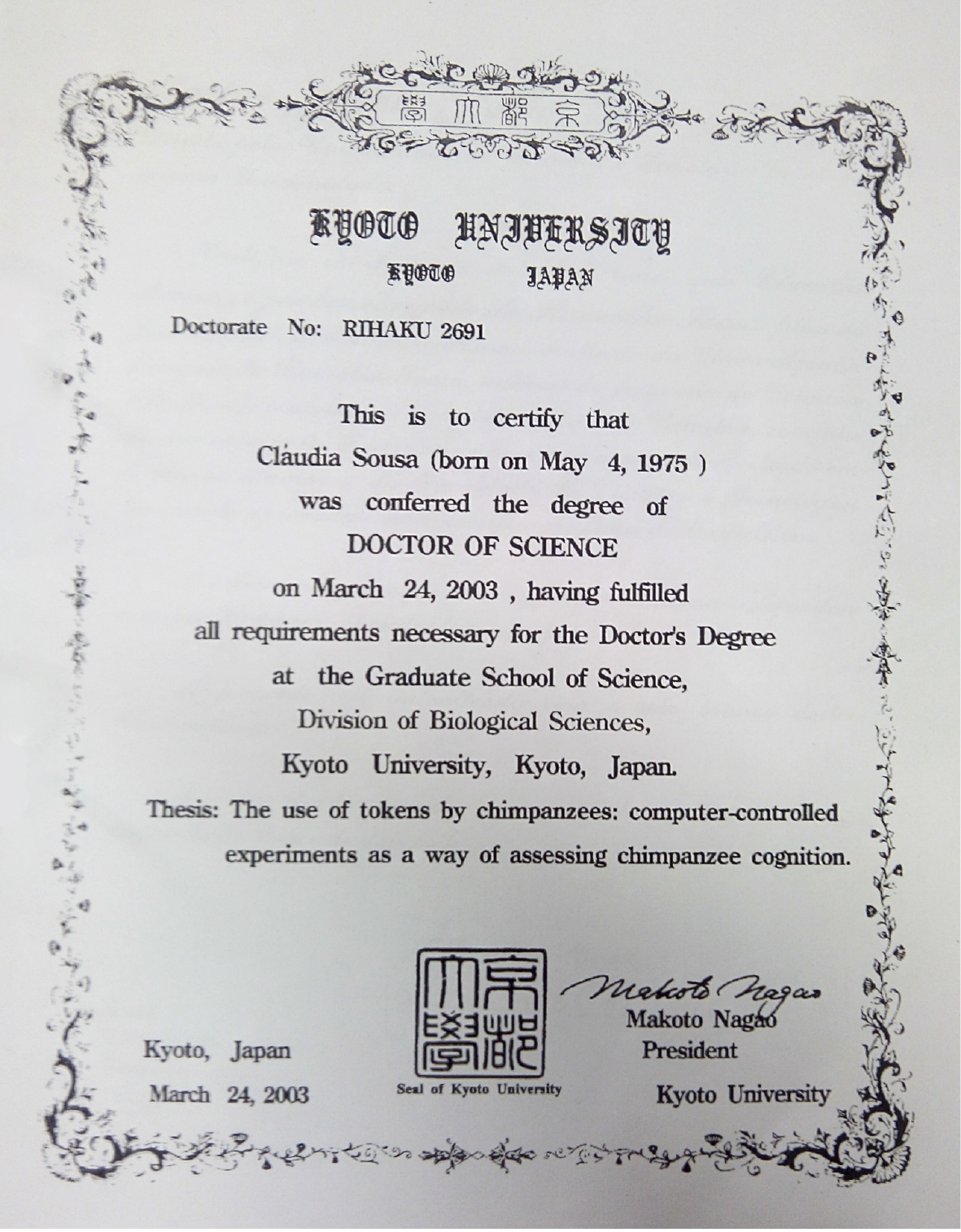
Cláudia fez dos Chimpanzés o seu objecto de estudo, e o seu trabalho foi desenvolvido sobretudo sobre esta espécie de Grande Símio, tanto em cativeiro, no Japão, como no campo, na Guiné-Conakri e na Guiné-Bissau. No primeiro dos países africanos estudou o uso instrumental de folhas como esponjas para beber água, e na antiga colónia portuguesa co-dirigia, com a investigadora Catarina Casanova (Instituto Superior de Ciências Sociais e Políticas, Universidade de Lisboa), a estação de investigação de “Dari” (que significa “chimpanzé” no crioulo da Guiné-Bissau), que ajudou a estabelecer. Foi Vice-Presidente (2003-2007) e também Presidente (2007-2011) da Associação Portuguesa de Primatologia.
A morte precoce, na sequência de doença prolongada afastou-a dos seus sonhos embora se tenha mantido estoicamente activa até ao fim dos seus dias. Recebeu, postumamente, o Prémio Santander de Internacionalização da Produção Científica, na FCSH da Universidade Nova de Lisboa, onde era docente do Departamento de Antropologia.
